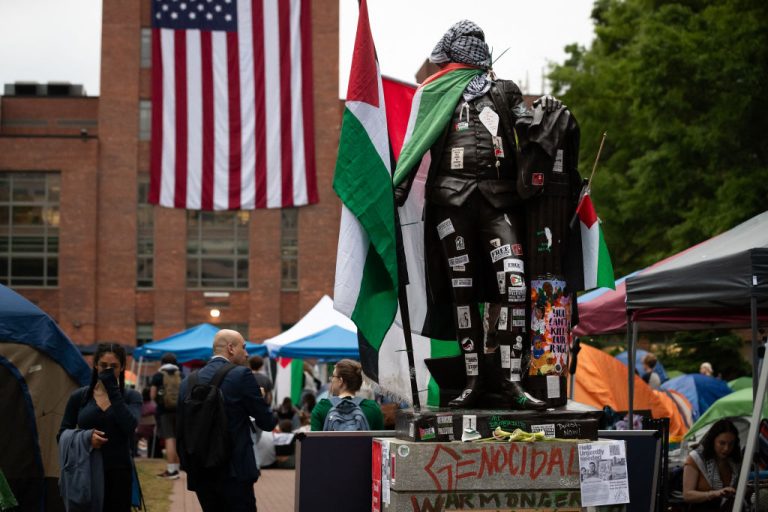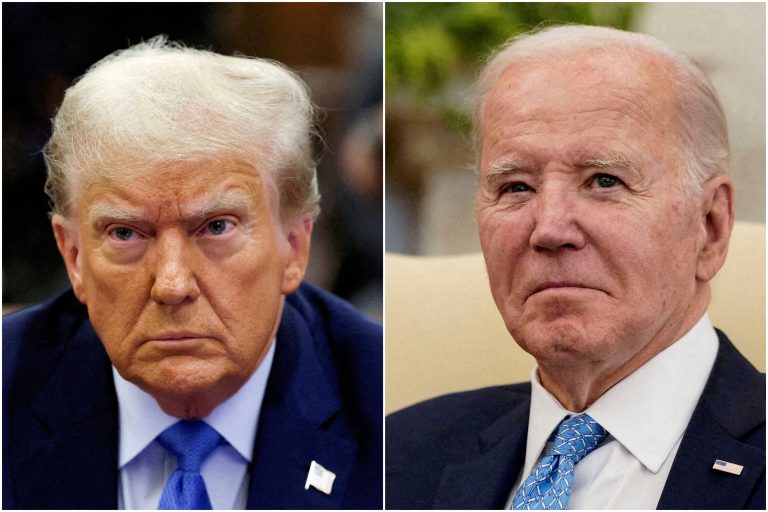Student protests in support of Palestine that erupted in April on college campuses in the United States have gone international and are now popping up on campuses in Canada, Europe and even Japan.
The students’ list of demands varies from campus to campus however many are demanding that their schools sever financial ties to Israel and companies involved in the conflict between Israel and the terrorist organization, and Hamas, the terrorist organization that controls the Gaza strip.
Some protesters want universities to disclose their investments in weapons companies and defense contractors they say have ties to Israel and the conflict in Gaza and to terminate exchange programs and partnerships with Israeli academic institutions.
Many students want their universities to declare Israel’s retaliation against Hamas’ terrorist attack on Oct. 7 last year a genocide.
The conflict in Gaza, which has a population of about 2 million, has killed over 30,000 people, according to the Hamas health authorities and as estimated by The Lancet and John Hopkins University.
Success
You are now signed up for our newsletter
Success
Check your email to complete sign up
Hamas’ terrorist attacks saw the group’s personnel penetrate many miles into Israeli territory; many Israeli citizens were slaughtered or taken captive, with dozens of women being raped and mutilated before being murdered. In all, over 1,200 Israelis perished in the raids.
Observers have noted that the brutality of the Hamas’ attacks was likely intended to elicit a disproportionate Israeli military response, and as such create a Palestinian humanitarian crisis to dampen global perceptions of Israel.
The Israel-Palestine conflict has dragged on more than 70 years since the 1940s. Israel has steadily encroached on Palestinian territory following the failure of various attempts at a two-state solution, as well as the Jewish state’s defeat of multiple wars launched by coalitions of other Middle Eastern countries to drive the Israelis out of the Holy Land.
The protests that first emerged at Columbia University in New York, have now spread to at least 90 campuses around the world and according to the Washington Post, some 150 colleges and universities across the United States.
While numbers remain murky, there have been at least 2,700 people arrested on at least 54 college campuses across the country in recent weeks, according to Axios.
READ MORE:
- How the CCP Inflates China’s GDP
- US Considering Sanctions on Chinese Banks for Russia Dealings, But No Concrete Plans Yet
- US Puts Pressure on China as Ukraine War Escalates
Violence erupts
In Amsterdam, Dutch riot police brought a quick end to a student protest early on May 7, arresting 125 people after students reportedly became violent and lashed out at authorities.
“In messages posted overnight on social media X, police said they had to act to stop the event and dismantle tents that [had] been set up by protesters, who used violence against police at the site,” Reuters reported.
“The police’s input was necessary to restore order. We see the footage on social media. We understand that those images may appear as intense,” the police said.
Several videos posted online show Dutch authorities using bulldozers to dismantle student encampments while police, dressed in riot gear, swing batons at students.
The Dutch reaction to the protests came after significant violence erupted earlier in May on UCLA’s campus, with student protesters and counter-protesters violently clashing.
Authorities said that 173 people were arrested at City College of New York and another 109 were arrested at Columbia University.
“All academic activities, including finals, for schools on Columbia’s Morningside Heights campus will be fully remote for the rest of the semester,” the school announced after the violence according to NBC News.
READ MORE:
- ‘China has been poisoned for over a century’: Statements From the Tuidang Movement
- Australia’s Defense Minister Denounces China Over Aerial Confrontation
- CCP Sends Planes Over Median Line to Taiwan, Practices Landing Drills
Protests spread to Canada
Since April 17, protests have spread across the globe, albeit with smaller numbers than what is being seen in the United States.
In Canada protests have emerged on eight campuses from Vancouver to Montreal.
At McGill University in Montreal, student protesters gathered on April 27, and pointed to a dataset of 50 companies that the school invests in that they say are “complicit in upholding the apartheid regime of Israel.”
On April 29, an encampment was set up on the University of British Columbia’s MacInnes Field.
A list of rules displayed by the protesters there reads in part, “We commit to grounding ourselves in the cause of this encampment: solidarity with Gaza and the Palestinian people who are facing genocide.”
Most recently, a small group of around 100 students set up tents and banners at McMaster University saying that they will be staying “indefinitely.”
Students protesting at the University of Ottawa have gone viral after images emerged showing graffiti on the steps of the school’s Tabaret Hall that reads “FREE PALASTINE [sic].”
READ MORE:
- ‘The CCP Does Not Represent China’: Falun Gong Practitioners Commemorate 25th Anniversary of Appeal in Beijing
- Communist China Heads Down a Road of Isolation and Impoverishment
- Chinese Coast Guard Ships Damaged Philippine Vessels With Water Cannons, Officials Say
Disciplinary crackdown
In response to the widespread chaos, universities are imposing suspensions and expulsions en masse for the first time in decades.
“Experts reached back to student protests against South Africa’s apartheid regime in the 1980s and even further to the Vietnam War in the 1960s and early 70s for comparisons. Nothing since then has come close to this sort of disciplinary crackdown,” The Washington Post reported.
What appears to be different with these student protests, when compared to past ones, is that there are many students on the opposite side of the issue, including many Jewish students. Coupled with the complicated politics of the conflict, violence and destruction of property seen there does not appear to be widespread support for the movement.
According to an independent New York City journalist, Katie Smith, protesting students at Fordham University, wrote “Free Palestine” on letters received informing them that they had been suspended.
Universities have announced that students are receiving disciplinary action for a number of reasons, including erecting unauthorized encampments, disrupting campus life, infringing on the rights of others, and failing to abide by the university’s policies, among other things.
Overall, it appears campus leadership have grown tired of the disruptions and will no longer tolerate the protest.
In a few cases, colleges have negotiated with students to end the protests. In most cases, however, negotiations either broke down or didn’t occur, prompting authorities to take action to bring the demonstrations to an end.
At Harvard, students were told that should they continue to participate in the protests that they would be placed on “involuntary leave,” barred from taking exams and kicked out of student housing.
Yale, Barnard, New York University, Columbia and UCLA have all threatened suspensions or expulsions.
In a statement last Monday (April 29), Columbia University President Minouche Shafik said, “One group’s rights to express their views cannot come at the expense of another group’s right to speak, teach, and learn.”








